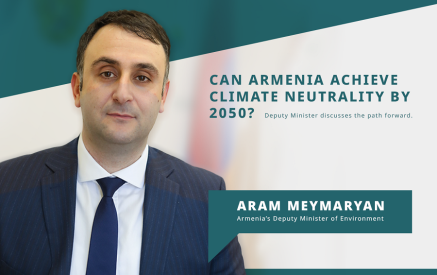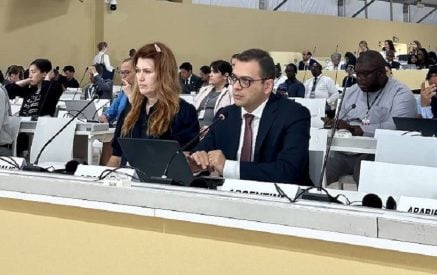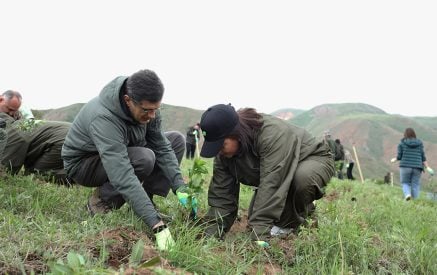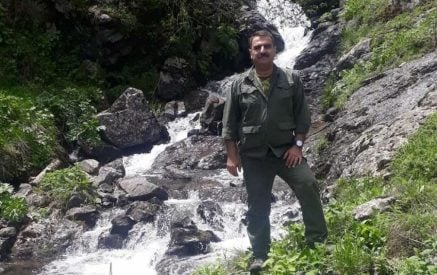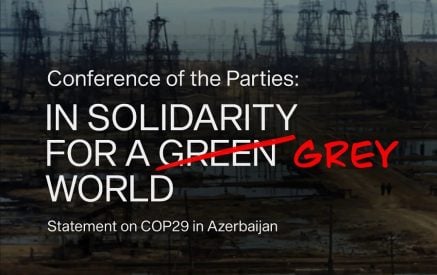
This project will support energy efficiency investments in schools, kindergartens, hospitals, administrative buildings, and street lighting and will reduce energy consumption of retrofitted public and social facilities as well as CO2 emissions.
“We are pleased that children and hospital patients, students, employees and users of administrative buildings will be the main beneficiaries of the proposed energy efficiency investments,” said Jean-Michel Happi, World Bank Country Manager for Armenia. “Armenia will start reaping the benefits of energy efficiency through reduced energy costs, improved comfort levels, and upgraded facilities.”
The World Bank’s Energy Efficiency Study forArmenia(2008) estimated that the public sector can save around 132 billion Armenian Drams (more than US$360 million), 130 million kWh of energy equivalent annually, and 35 percent of estimated total energy consumption. The energy audits conducted for eight public facilities as well as energy efficiency investments in eleven schools under the World Bank supported Urban Heating Project, suggest that an average facility could save around 150,000 KWh of energy per year by investing an average of US$70,000 with payback of three to eight years.
“By supporting energy efficiency investments in around 120 schools, hospitals and other public facilitates, the project will seek to develop, test and disseminate replicable and sustainable models for energy efficiency service provision. Energy efficiency investments in social and other public facilities can also help stimulate the market by creating demand for energy efficient equipment and services,“ said Ani Balabanyan, Head of the World Bank team designing the project.
The project will finance insulation of walls, basements and attics, repair/replacement of external doors and windows, window optimization, reflective surfacing of walls behind radiators, improvement/replacement of boilers and heating systems, as well as replacement of mercury vapor lamps with high-pressure sodium vapor lamps.
The replicability of energy efficiency investments will be ensured through: removal of existing legal, regulatory, procurement and information barriers to energy efficiency in public sector; development and testing of various financing, implementation and repayment schemes for similar sub-projects; training for public agencies to support with implementation of energy efficiency policies and regulations; and capacity building for private sector stakeholders to strengthen their capacity in carrying out energy audits, energy management, and financial appraisal of energy efficiency investments.
The GEF unites 182 countries in partnership with international institutions, non-governmental organizations (NGOs), and the private sector to address global environmental issues while supporting national sustainable development initiatives. Today the GEF is the largest funder of projects to improve the global environment. An independent financial organization, the GEF provides grants for projects related to biodiversity, climate change, international waters, land degradation, the ozone layer, and persistent organic pollutants. Since 1991, GEF has achieved a strong track record with developing countries and countries with economies in transition. GEF has provided US$9 billion in grants and leveraged US$40 billion in co-financing for over 2,600 projects in over 165 countries.
The World Bank Group is one of GEF’s implementing agencies and supports countries in preparing GEF co-financed projects and supervises their implementation. It plays a primary role in ensuring the development and management of investment projects. The Bank draws upon its investment experience in eligible countries to promote investment opportunities and to mobilize private sector, bilateral, multilateral, and other government and non-government sector resources that are consistent with GEF objectives and national sustainable development strategies. Since 1991, the World Bank Group has committed $1.52 billion in GEF resources and $2.25 billion in Bank group co-financing for GEF projects in 80 countries. In addition to GEF and Bank resources, the World Bank has mobilized additional co-financing of $5.48 billion from other donors.
The project will be supported by US$8.3 million from the Government funding, US$1.82 million from the GEF grant, and US$0.54 million co-financing from the Renewable Resources and Energy Efficiency Fund (R2E2 Fund). The Government funding will include repayments of the revolving funds under the recently completed World Bank supported Urban Heating and Renewable Energy projects.




















































